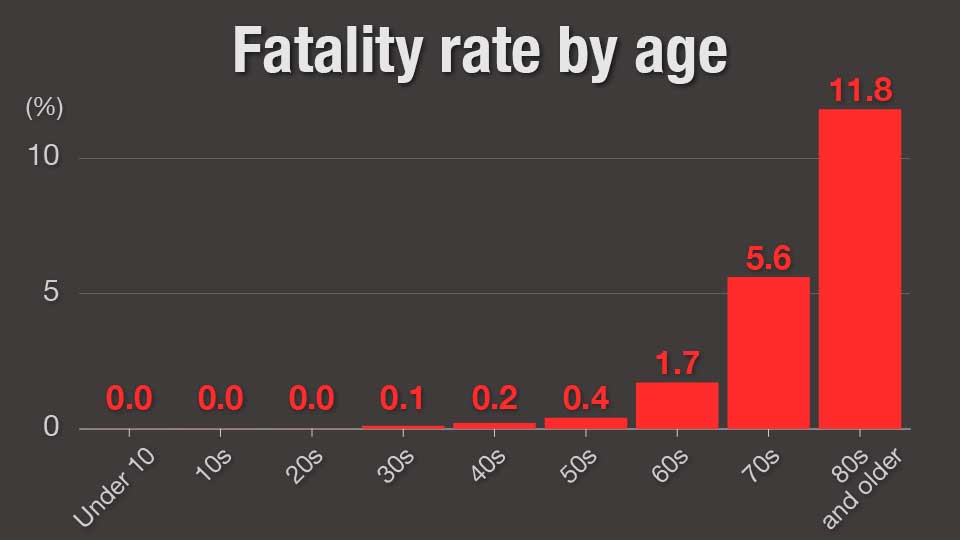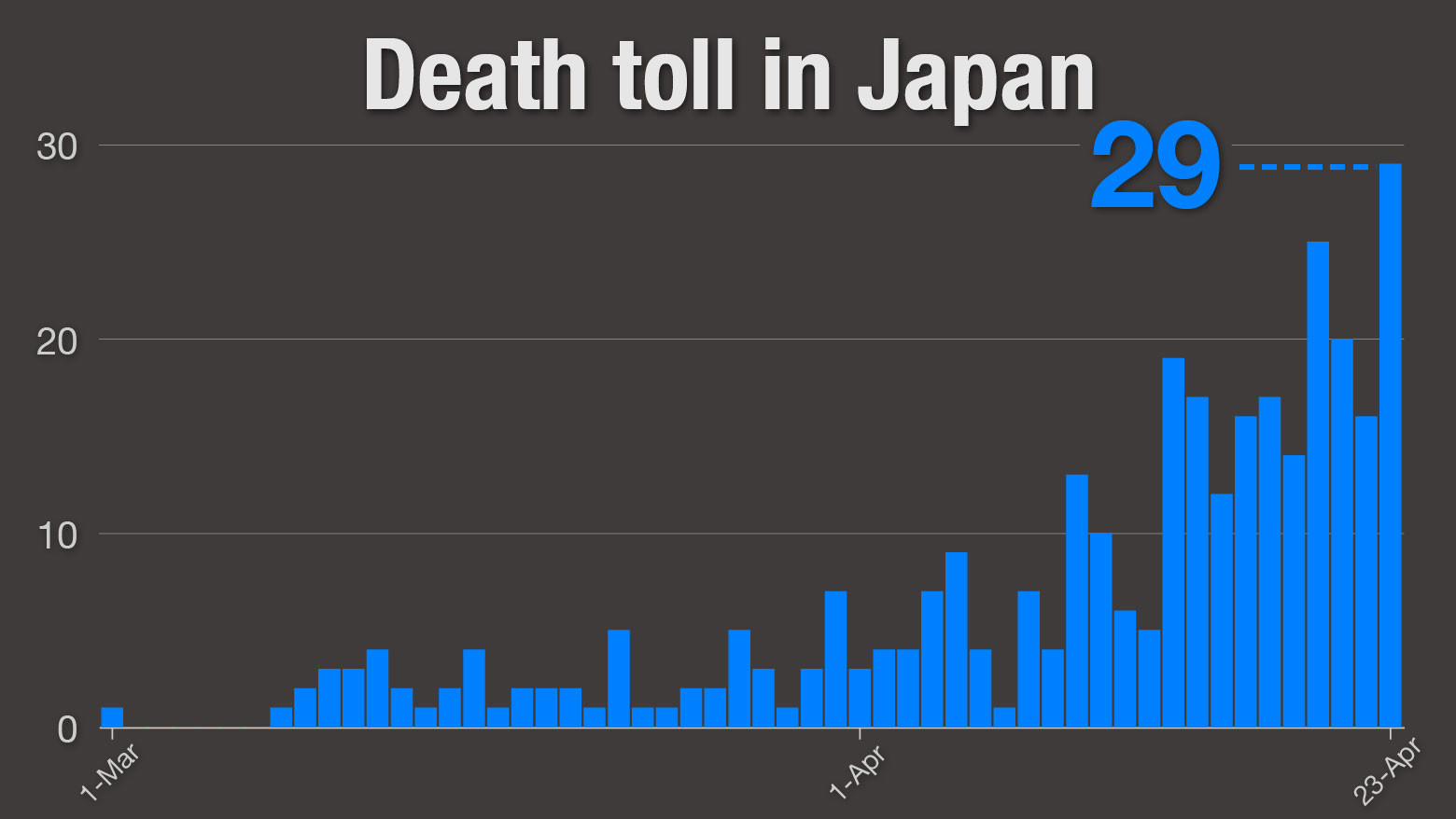Figures from Japan's health ministry show the virus is disproportionately affecting the elderly.
The fatality rate for people aged 80 or above who contracted the virus was 11.8 percent as of April 22. The rate is 5.6 percent for those in their 70s, 1.7 percent for those in their 60s, and 0.4 percent for those in their 50s.
The death toll also includes two people in their 30s, and four in their 40s.

Some of the recent fatalities are spotlighting just how stretched Japan's healthcare system already is. Japan's government has asked coronavirus patients with mild symptoms to stay at home or in designated accommodation facilities to free up hospital capacity for patients in serious condition.
But one man in 50s who was recuperating at home with mild symptoms of the virus was found dead on Tuesday. He had been living alone in Saitama Prefecture, north of Tokyo.
Public health officials had contacted him the night before his death and he complained that his condition had worsened and he had developed a fever. The officials say there appeared to be no urgency, so arrangements were made for his hospitalization the following day.
Earlier this month, a man in his 70s in the same prefecture developed symptoms of the virus and tested positive. His symptoms were mild, so he was told to stay at home until a hospital bed became available. But five days after testing positive, his condition suddenly took a turn for the worse. He was sent to a hospital, but was confirmed dead.
Health minister Kato Katsunobu says he now plans to notify local authorities that the basic rule should be that patients with mild symptoms are taken to designated accommodation, rather than staying at home.
Omi Shigeru, the deputy head of the government's panel of experts, says some patients suddenly become very sick after a week. He says it would be easier to respond if they were staying at designated accommodation. He also says that elderly people who face a higher risk of developing severe symptoms should see a doctor without hesitation.

